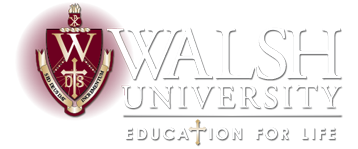Prerequisite courses taken at 4 year institutions (listed for science majors) are preferred. Prerequisites should be taken within the past 7 years; exceptions will be considered if higher level coursework has been successfully completed in these subjects within the past 7 years. Listed below are descriptions for appropriate courses that will satisfy prerequisite requirements. Some variability is likely amongst institutions. Some exceptions and substitutions can be made on an individual basis.The goal is to have a majority of these topics covered in each of the courses.
Course Descriptions
Biology 100 level course with lab
Cell biology, cellular structure and function, energy metabolism, photosynthesis, membrane structure and function, DNA, RNA and proteins. Cellular division (mitosis & meiosis) and classical genetics.
Biology 100 level course with lab
Cell biology, mechanisms of speciation and evolution, taxonomy, viruses, prokaryotes and eukaryotes, including animals, plants, fungi, algae and protozoans.
Chemistry 100 level course with lab
Atoms, molecules & ions, chemical reactions and stoichiometry, gas behavior, thermochemistry, atomic theory & quantum mechanics and chemical bonds.
Chemistry 100 level course with lab
Chemical bonding, molecular geometry, solution chemistry, chemical kinetics, equilibrium, acid-base chemistry, complex ions, thermodynamic state functions, electrochemistry and nuclear chemistry.
Physics 100 level course with lab
Gravitational forces, work, energy and momentum, simple harmonic motion, wave motion and sound; kinetic theory of matter, behavior of gases, calorimetry and change of state.
Physics 100 level course with lab
Electricity and magnetism, light (reflection, refraction, interference, polarization); relativity; quantum mechanics.
Anatomy and Physiology I & II
Structure and function of all relevant human body systems including: nervous, cardiovascular, respiratory, hematologic, musculoskeletal, gastrointestinal, genitourinary, reproductive, integumentary and immunologic. May require 4–8 semester hours dependent on if one course is comprehensive or if two sequential courses (A&P I & A&P II) are taken to satisfy this requirement. Animal physiology is not acceptable.
Psychology 100 level course or greater
Perception, learning, research methods, mental disorders, psychotherapy, history and systems of psychology.
Human development, lifespan issues focusing on growth and development including personality, language, cognition and intelligence. An alternative is abnormal psychology or cognitive neuropsychology.
Exercise Physiology (lab optional)
Exercise response and adaptations to all relevant body systems (musculoskeletal, cardiovascular and pulmonary). Exercise testing and prescription for a variety of populations including aerobic, anaerobic and strength training. Disease prevention.
Statistics
Theory of probability and statistics including, frequency distribution, binomial distributions, normal distributions, means, variances, standard deviations, sampling, confidence limits and testing of hypotheses with a parametric and nonparametric analyses.
